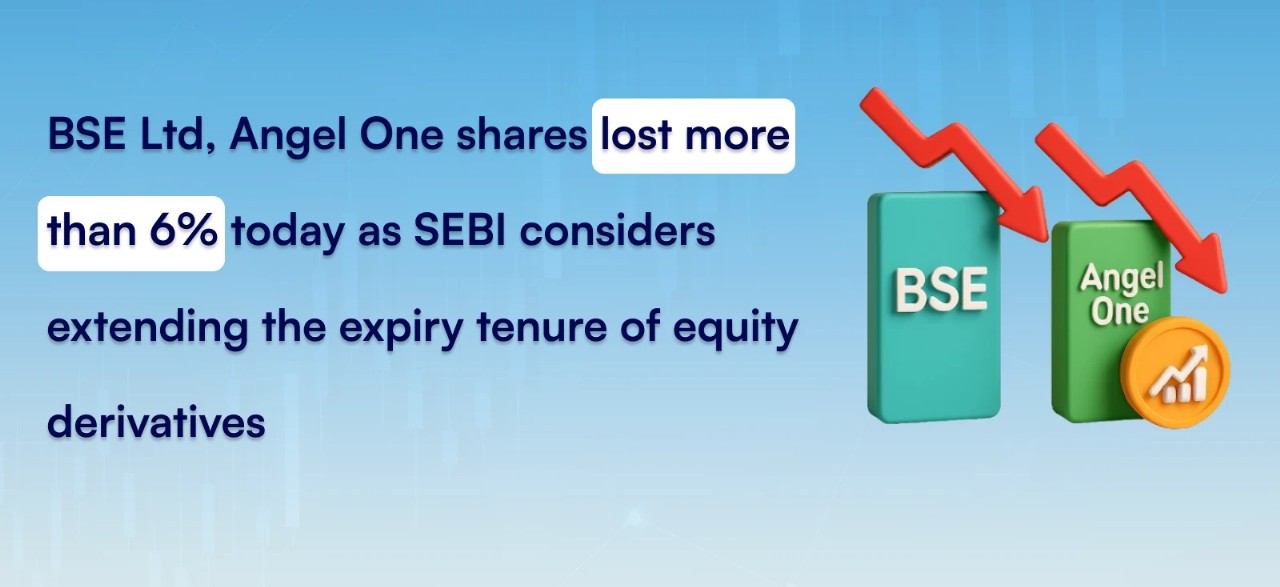
Follow WOWNEWS 24x7 on:

India’s capital market players are feeling the heat as the Securities and Exchange Board of India (SEBI) tightens its grip on equity derivatives. But not all firms are equally bruised. Recent market data and industry commentary reveal that the Bombay Stock Exchange (BSE) has managed to absorb the impact of SEBI’s proposed curbs more effectively than Angel One, one of the country’s leading discount brokerages. The divergence in resilience underscores the importance of diversified revenue streams and strategic positioning in a volatile regulatory environment.
Key highlights from the fallout:
1. SEBI’s proposal to extend the tenure of equity derivatives and limit weekly expiries has triggered a sharp selloff in capital market stocks.
2. Angel One’s shares have plunged nearly 19 percent over six trading sessions, while BSE’s decline has been relatively milder at 17 percent.
3. BSE’s diversified revenue model and lower dependence on derivatives have helped cushion the blow.
4. Angel One, with 45 percent of its revenue tied to F&O broking, remains more vulnerable to regulatory shifts.
SEBI’s tightening stance on derivatives
At the FICCI Annual Capital Market Conference, SEBI Chairman Tuhin Kanta Pandey emphasized the need to recalibrate the tenor and maturity of equity derivatives contracts. The regulator is considering a shift toward longer-term products to promote hedging and long-term investing, while curbing speculative trading.
This has sparked speculation that weekly expiry contracts—currently a major revenue driver for exchanges and brokers—may be phased out. SEBI has already limited weekly contracts to one per exchange and fixed expiry days, signaling its intent to reduce excessive churn and manipulation.
Impact on Angel One
Angel One, a discount brokerage heavily reliant on derivatives trading, has been hit hard by the regulatory headwinds. With nearly half its revenue coming from the F&O segment, any disruption in derivatives volumes directly affects its topline.
Since August 21, Angel One’s stock has declined in six consecutive sessions, wiping out nearly one-fifth of its market value. Analysts expect a 10 to 15 percent hit to full-service brokerages, but discount brokers like Angel One could face deeper revenue erosion if SEBI’s proposals are implemented.
Angel One’s leadership has acknowledged the risk, noting that the firm is exploring ways to diversify its offerings and reduce dependence on short-term derivative products.
BSE’s relative resilience
While BSE has also seen a decline in share price—down 17 percent over the same period—it has weathered the storm better than Angel One. The exchange’s diversified revenue streams, including cash market transactions, index services, and data platforms, have provided a buffer against the fallout.
BSE’s management has taken a measured stance, stating that regulatory policy is an evolving process and that the exchange is focused on long-term growth and diversification rather than short-term margin expansion. This strategic clarity has helped reassure investors and limit the damage.
According to reports, derivatives contribute around 44 percent of BSE’s total revenue, compared to 58 percent projected for FY26. While still significant, this lower exposure has helped BSE absorb the shock more effectively.
Market sentiment and broader implications
The broader Nifty Capital Market index has also taken a hit, falling over 2 percent amid concerns about SEBI’s regulatory tightening. Other capital market stocks like CDSL, MCX, and Motilal Oswal have seen declines ranging from 1 to 6 percent.
Industry experts believe that while SEBI’s move may dent short-term volumes, it could lead to a healthier, more balanced market in the long run. Exchanges and brokers will need to adapt by investing in technology, expanding into advisory services, and deepening their presence in the cash segment.
Looking ahead
As SEBI prepares to release a consultation paper on derivative tenures, stakeholders across the capital market ecosystem are bracing for change. The ability to pivot, diversify, and communicate clearly with investors will determine who thrives and who merely survives.
Sources: CNBC-TV18, Business Standard, Moneycontrol, Economic Times, Fortune India, InvestOnly.in.



